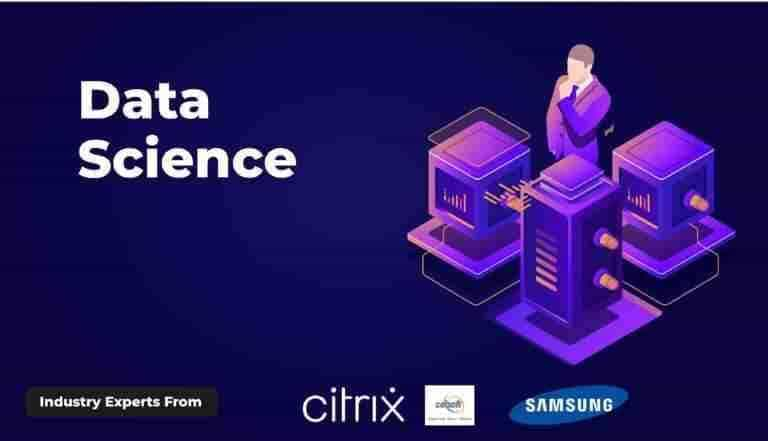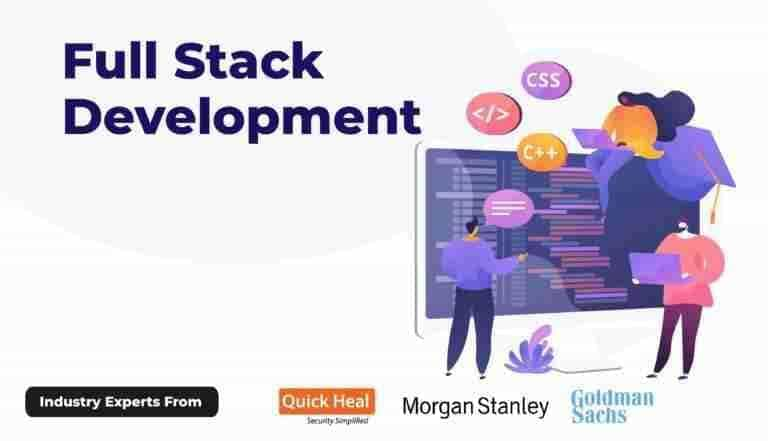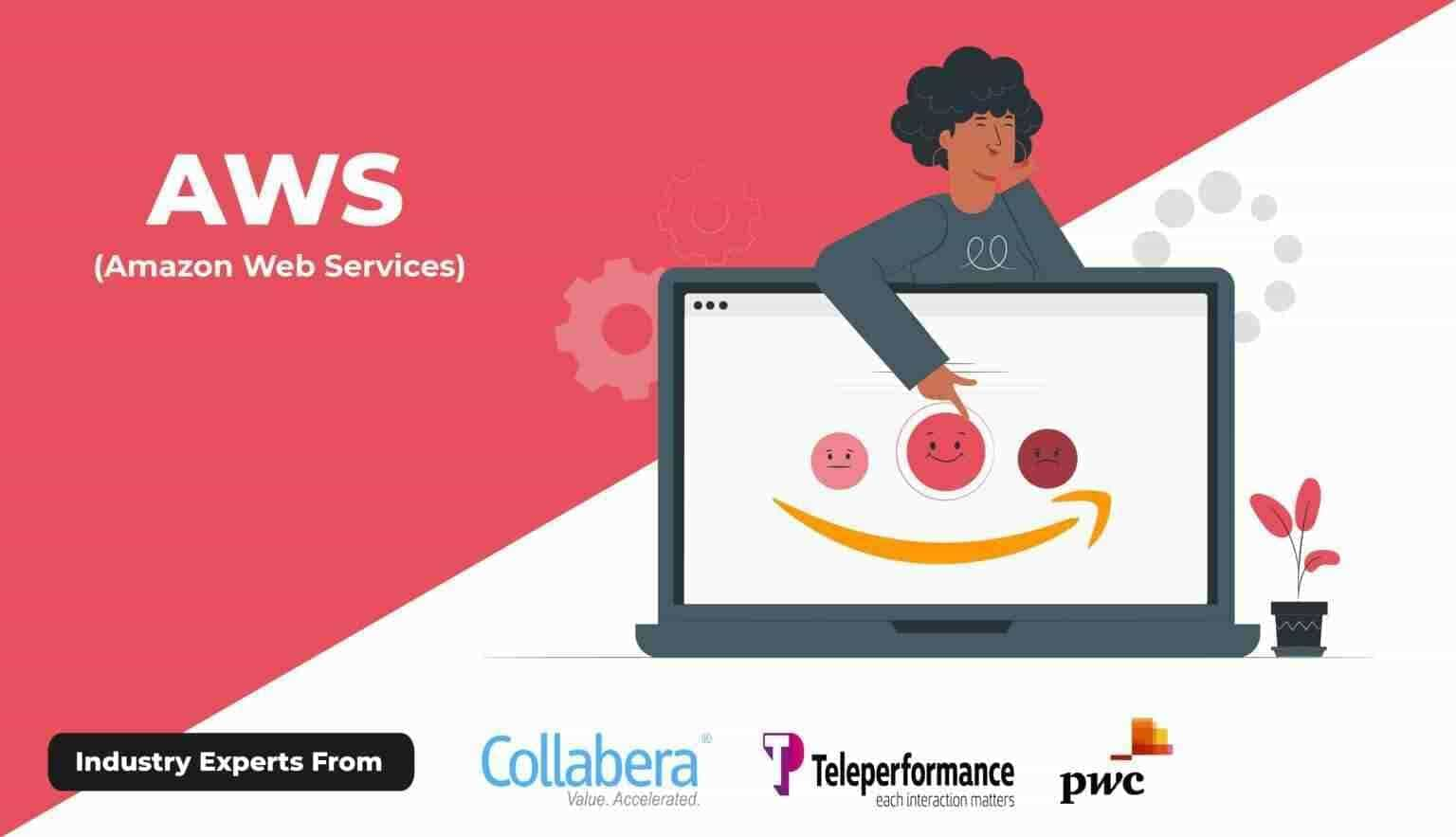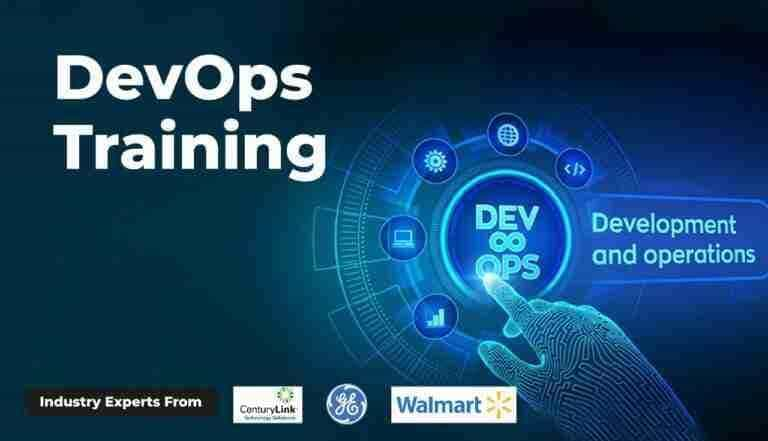20 Best Digital Marketing Project Ideas for Beginners & Pros
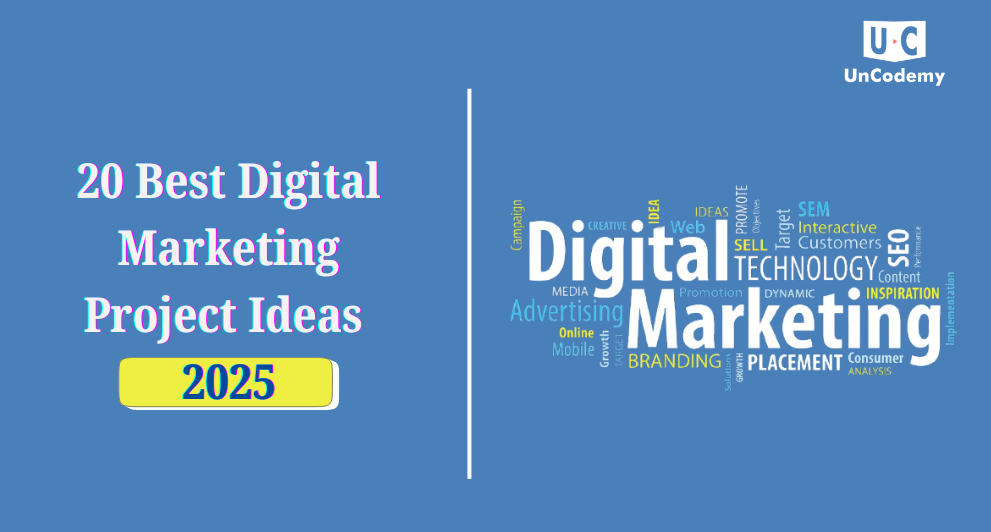
- content marketing
- digital marketing
- e-commerce marketing
- email marketing
- Google Ads
- influencer marketing
- project ideas
- SEO
- social media campaigns
As consumers become more eco-conscious, sustainable and environmentally friendly marketing strategies are gaining momentum. Social commerce is also on the rise, with platforms like Instagram and Facebook offering seamless shopping experiences directly within their apps. Influencer marketing is undergoing a transformation, with a focus on influencers who build genuine connections with niche audiences. Staying updated on these trends is vital for businesses to remain competitive and meet evolving customer expectations. Marketers who embrace these changes can unlock new opportunities to enhance engagement and achieve impactful results. Adopting data-driven decision-making and maintaining flexibility in strategies are essential to thrive in this dynamic, fast-paced environment.
What is Digital Marketing?
Digital marketing is the practice of promoting products or services using online platforms and tools. Unlike traditional methods like print, radio, or TV, digital marketing focuses on connecting with audiences through channels such as social media, search engines, emails, and websites. Key strategies include improving search engine rankings, creating engaging content, leveraging social media, sending personalized emails, and running online advertising campaigns. It’s a dynamic way to reach and engage customers in the digital age.
This field is growing rapidly and offers excellent career opportunities for individuals interested in creativity, analytics, and technology.
Click here to learn more about Digital Marketing.
Why Are Digital Marketing Projects Important?
Digital marketing projects are essential because they reflect the core of digital marketing—effectively promoting brands and products across online platforms like search engines, websites, and social media. These projects are more than just a way to evaluate your skills; they provide practical, real-world experience. By working on these projects, you can gain a deeper understanding of digital marketing strategies and prepare to excel in this ever-changing industry.
Key Tools for Digital Marketing Projects
Here’s a breakdown of five essential categories of tools that form the foundation of digital marketing projects:
- Social Media Platforms
Social media is a cornerstone of modern marketing. Platforms like Facebook, Instagram, and Snapchat allow businesses to connect with their audience effectively. For running targeted ads and tracking their performance, tools like Facebook Ads Manager are indispensable. To streamline social media efforts, tools like Buffer and Hootsuite help schedule posts, manage campaigns, and analyze engagement.
- Design Tools
In digital marketing, visual appeal is crucial. Tools like Canva and Photoshop make it easy to create stunning visuals, whether for ads, social media posts, or blogs. These tools empower marketers, even those with little design experience, to craft eye-catching and professional-looking content.
- Analytics Tools
Analytics tools guide marketers in understanding campaign performance. Google Analytics provides comprehensive website data, while tools like Facebook Insights and Twitter Analytics focus on social media metrics. For more advanced insights, platforms like Periscope offer data on user demographics, search behavior, and conversion rates, helping refine strategies.
- Content Marketing Tools
Content drives digital marketing, and tools like CoSchedule and HubSpot simplify the process of creating and managing it. These platforms help identify content opportunities, plan engaging blog and social media posts, and track their performance. Tools like Buffer also monitor online conversations, ensuring your content stays relevant and impactful.
- Email Marketing Tools
Email marketing is still a vital strategy for connecting with audiences. Tools like MailChimp and Iterable help build email lists, automate campaigns, and analyze performance. These platforms make it easy to test, optimize, and create compelling emails that drive user actions, like event sign-ups or product purchases.
Digital Marketing Projects for Beginners:
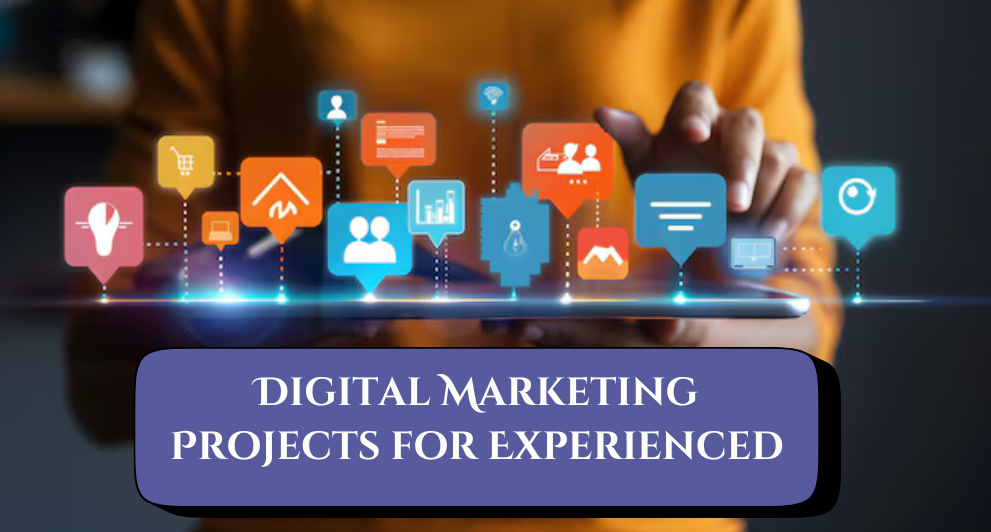
Influencer Marketing Campaign
This project focuses on leveraging influencers to expand your brand’s reach and credibility.
- Key Activities
- Use tools like BuzzSumo, HypeAuditor, and Social Blade to identify influencers who match your brand values and audience.
- Develop collaboration strategies, such as sponsored posts, product reviews, or giveaways, that resonate with both the influencer’s followers and your brand’s messaging.
- Track campaign performance by analyzing metrics like engagement (likes, comments, shares), reach, and return on investment (ROI).
- Learning Outcomes
- Understand how to choose the right influencers to enhance brand visibility and build trust.
- Learn to maintain relationships with influencers and their audience for long-term growth and authenticity.
Social Media Campaign Analysis
Analyze an existing social media campaign to identify strengths, weaknesses, and opportunities.
- Key Activities
- Review campaign goals, such as boosting brand awareness or driving sales.
- Analyze content types, posting frequency, and engagement metrics (likes, comments, shares).
- Assess the campaign’s alignment with its target audience and overall effectiveness.
- Learning Outcomes
- Gain insights into what makes a social media campaign successful.
- Learn how to optimize future campaigns for better engagement and results.
Keyword Research for SEO
Learn the art of finding and utilizing keywords to improve website rankings on search engines.
- Key Activities
- Use tools like Google Keyword Planner and SEMrush to identify high-volume, low-competition keywords.
- Analyze user intent behind selected keywords and group them into categories for various content strategies.
- Prioritize keywords that align with your audience’s search behavior.
- Learning Outcomes
- Understand how keyword research impacts SEO and website visibility.
- Learn to create content that targets the right audience effectively.
Google Ads Campaign Simulation
Create a mock Google Ads campaign to learn how to design and manage online advertising.
- Key Activities
- Select a product or service and identify keywords for targeting.
- Write compelling ad copy with a strong call to action and choose ad visuals.
- Set a budget, define bidding strategies, and segment your target audience.
- Learning Outcomes
- Develop skills to optimize paid advertising campaigns for better ROI.
- Learn to manage ad budgets and create high-converting advertisements.
Content Marketing Plan
Plan and create engaging content to attract and retain customers.
- Key Activities
- Identify target audience needs and interests using tools like HubSpot or BuzzSumo.
- Create a content calendar with a mix of blogs, videos, and infographics.
- Measure content performance through metrics like page views, shares, and conversions.
- Learning Outcomes
- Understand how to create content that builds trust and drives engagement.
- Learn to use content marketing to generate leads and nurture customer relationships.
Website SEO Audit
Evaluate a website’s SEO performance and suggest improvements.
- Key Activities
- Use tools like Screaming Frog and Ahrefs to identify issues like broken links, slow loading times, and missing meta tags.
- Analyze keyword usage, backlinks, and mobile-friendliness.
- Provide actionable recommendations to improve SEO health.
- Learning Outcomes
- Gain expertise in optimizing websites for better search engine rankings.
- Learn to identify and fix SEO issues to enhance user experience.
Email Marketing Campaign
Design an effective email campaign to engage with customers and drive conversions.
- Key Activities
- Build or segment an email list based on customer demographics or behavior.
- Use tools like MailChimp or Constant Contact to create professional email templates.
- Track email metrics like open rates, click-through rates, and conversion rates to refine future campaigns.
- Learning Outcomes
- Master the art of creating personalized and impactful email campaigns.
- Understand how to use analytics to improve engagement and achieve marketing goals.
Instagram Content Calendar
Plan and schedule Instagram posts for consistent engagement.
- Key Activities
- Research trending hashtags, content themes, and optimal posting times.
- Create a mix of content types (reels, stories, carousel posts) that align with your brand’s voice.
- Use tools like Later or Hootsuite to schedule posts and track performance.
- Learning Outcomes
- Learn how to maintain a strong and consistent Instagram presence.
- Understand how to use content planning to increase reach and engagement.
Competitor Analysis
Analyze your competitors’ strategies to identify opportunities for your own brand.
- Key Activities
- Use tools like SEMrush or SpyFu to study competitors’ keywords, ads, and content.
- Analyze their social media, website, and customer engagement tactics.
- Highlight areas where your brand can outperform or differentiate itself.
- Learning Outcomes
- Gain insights into market trends and competitive strategies.
- Learn how to refine your approach based on competitor strengths and weaknesses.
Google Analytics Reporting
Learn to track and interpret website data for better marketing decisions.
- Key Activities
- Set up Google Analytics on a website and monitor metrics like traffic sources, bounce rate, and user behavior.
- Generate reports that summarize performance and highlight areas for improvement.
- Use insights to recommend actionable changes to boost website traffic and conversions.
- Learning Outcomes
- Understand how to use data to optimize website performance and user experience.
- Learn to create insightful reports that support data-driven decision-making.
Digital Marketing Projects for Experienced:
E-commerce Marketing Strategy
This project focuses on creating a marketing strategy that drives sales and customer retention for an e-commerce store.
- Key Activities
- Develop a clear value proposition for your online store.
- Implement email marketing campaigns to promote special offers or product launches.
- Use social media and Google Ads to target potential customers with tailored promotions.
- Optimize the e-commerce site for SEO and ensure a seamless checkout experience.
- Analyze sales data to optimize product offerings and pricing strategies.
- Learning Outcomes
- Gain skills in developing comprehensive e-commerce strategies that increase traffic and sales.
- Learn how to use digital marketing tactics effectively for e-commerce platforms.
Social Media Influencer Collaboration Plan
This project involves planning a strategy to collaborate with social media influencers to promote a brand or product.
- Key Activities
- Research influencers in your niche using tools like BuzzSumo and HypeAuditor.
- Develop campaign ideas that align with both the influencer’s audience and the brand’s goals.
- Negotiate terms and create collaboration agreements.
- Track performance metrics such as engagement, reach, and conversions from the campaign.
- Learning Outcomes
- Learn how to effectively collaborate with influencers to build brand awareness and drive sales.
- Understand how to create mutually beneficial partnerships between brands and influencers.
Conversion Rate Optimization (CRO)
CRO focuses on improving the percentage of website visitors who take a desired action (e.g., making a purchase or signing up).
- Key Activities
- Analyze your website’s performance using Google Analytics to identify conversion bottlenecks.
- Test different elements on your website (headlines, CTAs, images) to see what increases conversions (A/B testing).
- Optimize landing pages, simplify navigation, and improve the user experience.
- Use tools like Hotjar to track user behavior and make data-driven improvements.
- Learning Outcomes
- Understand the principles of improving website performance to increase conversions.
- Learn to use A/B testing and user behavior analysis to optimize landing pages.
Local SEO Strategy
Local SEO focuses on optimizing your website to rank higher in local search results, especially for businesses with physical locations.
- Key Activities
- Claim and optimize your Google My Business listing.
- Add local keywords to your website content and meta tags.
- Gather customer reviews on Google and other review platforms.
- Build local backlinks from regional websites and directories.
- Learning Outcomes
- Master the techniques for improving local search visibility and attracting local customers.
- Learn how to use location-based SEO to improve foot traffic and local sales.
Retargeting Ads Campaign
Retargeting involves showing ads to users who have previously interacted with your website but didn’t complete the desired action (e.g., making a purchase).
- Key Activities
- Set up a retargeting campaign on platforms like Google Ads and Facebook Ads.
- Segment your audience based on their actions (e.g., abandoned cart, product views).
- Create customized ads that remind users of the products they viewed or abandoned.
- Measure the success of retargeting ads by analyzing conversion rates and ROI.
- Learning Outcomes
- Learn how to engage previous website visitors and encourage them to complete purchases.
- Understand the impact of retargeting on sales and customer acquisition.
Voice Search Optimization
Voice search optimization focuses on making your website more discoverable through voice assistants like Siri, Alexa, and Google Assistant.
- Key Activities
- Research voice search queries and identify common phrases users ask.
- Optimize your website’s content to include natural, conversational keywords.
- Focus on long-tail keywords and local searches as they’re common in voice searches.
- Ensure your website is mobile-friendly and loads quickly to improve voice search rankings.
- Learning Outcomes
- Understand the importance of voice search in the evolving digital landscape.
- Learn how to optimize your content and website for voice-activated devices.
YouTube Channel Growth Plan
This project is about developing a strategy to grow a brand’s presence on YouTube, focusing on video content creation and optimization.
- Key Activities
- Develop a content plan with regular uploads based on audience interests and trending topics.
- Optimize video titles, descriptions, and tags for SEO.
- Promote videos on social media and other platforms to increase visibility.
- Monitor YouTube Analytics to track growth metrics like views, watch time, and engagement.
- Learning Outcomes
- Learn how to create a successful YouTube content strategy.
- Understand how to optimize video content for search and build a subscriber base.
Digital PR Campaign
A digital PR campaign involves using online media channels to improve brand reputation and visibility.
- Key Activities
- Identify key digital publications, blogs, and influencers to pitch your story.
- Develop a press release or story that will capture the media’s attention.
- Reach out to journalists, bloggers, and influencers to secure coverage.
- Measure success through metrics such as media mentions, backlinks, and traffic increase.
- Learning Outcomes
- Gain an understanding of digital PR tactics and how they influence brand perception.
- Learn how to craft effective press materials and secure media coverage.
Social Media Analytics Dashboard
This project involves creating a dashboard that tracks and analyzes social media performance.
- Key Activities
- Choose key performance indicators (KPIs) such as engagement, reach, and conversions.
- Use tools like Google Data Studio, Power BI, or Tableau to create a custom dashboard.
- Collect data from social media platforms (Facebook, Instagram, Twitter) and integrate it into the dashboard.
- Analyze trends and create reports that help refine future social media strategies.
- Learning Outcomes
- Learn how to visualize and interpret social media data to make informed decisions.
- Understand how to track and optimize social media marketing efforts effectively.
Cross-Platform Marketing Campaign
This project focuses on creating a cohesive marketing campaign that runs across multiple platforms.
- Key Activities
- Develop a unified message and creative assets that can be adapted for various platforms (social media, email, website, etc.).
- Plan and schedule content across platforms like Facebook, Instagram, Twitter, and Google Ads.
- Track campaign performance across all platforms to identify the most effective channels.
- Optimize content for each platform’s specific audience and format.
- Learning Outcomes
- Learn how to create integrated marketing campaigns that work across different digital platforms.
- Understand how to manage multiple marketing channels and analyze their performance holistically.
Conclusion
In conclusion, leveraging innovative digital marketing strategies like AI-driven personalization, video content, voice search optimization, and interactive campaigns is crucial for staying ahead in the competitive landscape. These approaches not only strengthen audience engagement but also play a vital role in achieving marketing objectives effectively.
FAQs
- What is a digital marketing project?
It’s a strategy to promote a product or service online using channels like social media, SEO, email, and websites.
- How do I start a digital marketing project?
Define goals, target audience, choose platforms, create a strategy, and monitor performance.
- What skills are needed?
Key skills include SEO, content marketing, social media, email marketing, paid ads, and analytics.
- How do I measure success?
Track KPIs like website traffic, engagement, conversion rates, and ROI using tools like Google Analytics.
- What tools should I use?
Tools like Google Analytics, Hootsuite, SEMrush, MailChimp, and Canva are essential.
- How do I choose the right social media platforms?
Pick platforms based on your audience. Instagram and TikTok are good for younger crowds, LinkedIn for B2B.
- What is SEO’s role in a project?
SEO boosts organic traffic by optimizing content with relevant keywords and improving website performance.
- What is content marketing?
It involves creating valuable content like blogs and videos to engage your audience and drive traffic.
- Why is email marketing important?
Email marketing nurtures customer relationships, drives conversions, and keeps your audience engaged.
- How can I improve ROI?
Target the right audience, optimize ad spend, use A/B testing, and analyze data to improve campaigns.

















